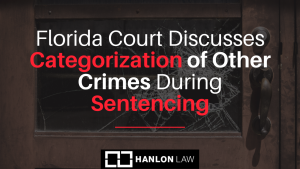The United States Constitution includes numerous provisions that protect criminal defendants. Among other things, it dictates that they must be mentally competent before they can be tried for a criminal offense. Thus, if a criminal matter proceeds to trial despite concerns regarding a defendant’s mental competence, it may constitute a violation of their constitutional rights. Recently a Florida court explained what evidence a defendant must produce to show that a trial court harbored a bona fide doubt about their competence in a case in which the defendant appealed his sentence following his conviction for producing child pornography. If you are charged with a sex offense, it is smart to meet with a dedicated Tampa sex crime defense lawyer to evaluate your possible defenses.
The Facts of the Case
It is reported that the defendant was charged with two counts of producing child pornography. The case proceeded to trial, and he was convicted. The court subsequently sentenced him to 720 months in prison. The defendant appealed, arguing, among other things, that the trial court committed an abuse of discretion by denying his motion to undergo a competency evaluation and hearing.
Establishing a Bona Fide Doubt About a Defendant’s Mental Competence
The court declined to adopt the defendant’s reasoning and denied his appeal. In doing so, it explained that it reviewed a district court’s failure to order a competency hearing under the abuse of discretion standard. Continue Reading ›
 Tampa Criminal Lawyer Blog
Tampa Criminal Lawyer Blog



